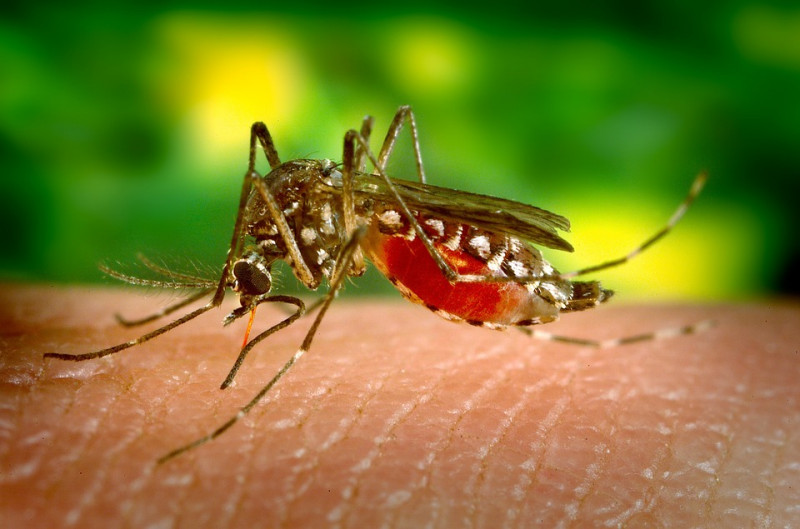
En CTXT podemos mantener nuestra radical independencia gracias a que las suscripciones suponen el 70% de los ingresos. No aceptamos “noticias” patrocinadas y apenas tenemos publicidad. Si puedes apoyarnos desde 3 euros mensuales, suscribete aquí
Actualmente muchos atletas, delegaciones y periodistas están analizando la decisión de participar en los Juegos. Estamos de acuerdo con la recomendación de los Centros de Control de Enfermedades de Estados Unidos sobre que los trabajadores deberían “considerar postergar sus viajes a áreas en las que el virus Zika está activo.” Si se sigue ese consejo, ningún atleta tendría que elegir entre arriesgarse a contraer la enfermedad y participar en una competición para la que han entrenado toda su vida.
Pero nuestra mayor preocupación es la salud mundial. La cepa brasileña del virus Zika es una amenaza para la salud hasta un punto que la ciencia no había observado antes. Se crea un riesgo innecesario si se permite que 500.000 turistas extranjeros de todos los países viajen a los Juegos, adquieran potencialmente el virus y regresen a sus casas en lugares donde podría volverse endémico. Si eso llegara a suceder en lugares pobres, que no han sido afectados por el virus (por ejemplo, la mayor parte del Sur de Asia y África), el sufrimiento puede ser enorme. Es poco ético correr ese riesgo, y más cuando esos Juegos podrían posponerse o trasladarse a otro lugar.
En nuestra opinión, varios descubrimientos científicos recientes obligan a que la OMS reconsidere su posición sobre los Juegos de 2016.
1. La cepa del virus brasileño causa microcefalia y “probablemente síndrome de Guillain-Barré”. Además, dado que los estudios en humanos y animales demuestran que el virus es neurotrófico y provoca muerte celular, es biológicamente plausible que produzca además otros daños neurológicos hasta ahora no descubiertos hasta ahora, como sucede con virus similares, como el dengue.
2. Mientras que el riesgo del Zika para cualquier individuo es muy bajo, el riego para la población es innegablemente alto. El Gobierno de Brasil ha informado de 120.000 posibles casos de Zika, y 1.300 casos confirmados de microcefalia (más 3.300 que se están investigando), cifras que están por encima del nivel histórico de microcefalia.
3. Río de Janeiro está notablemente afectada por el Zika. El Gobierno brasileño señala que es el segundo estado con más casos probables de Zika en el país (32.000) y el cuarto con la mayor tasa de indicencia (195 por 100.000) que demuestra una transmisión activa.
4. A pesar del nuevo programa de Río para acabar con el mosquito, las enfermedades transmitidas por este insecto han aumentado en vez de reducirse. El Zika es una nueva epidemia y no existen registros históricos. Sin embargo, tomando como referencia el número de infectados por dengue, se puede hacer una comparación. Entre enero y abril de 2016 los casos de Zika en Río han crecido un 320%, y un 1150% en los mismo períodos de 2014 y 2015. En el barrio de Olympic Park (Barra da Tijuca) ha habido más casos de dengue en el primer cuarto de 2016 que en todo 2015.
5. El sistema sanitario de Río se ha debilitado tanto que ha hecho imposible un esfuerzo de última hora contra el Zika. Recientemente, el gobierno del estado de Río declaró una emergencia del sector sanitario y recortó un 20% las subvenciones para paliar las enfermedades transmitidas por mosquitos. El virus es el agente infeccioso del Zika pero su verdadera causa son las pobres condiciones sociales y de salubridad - factores que no tienen un arreglo rápido, y a los que no ayudan la reducción de recursos desviados a los Juegos.
6. Es posible erradicar de Río el mosquito Aedes aegypti, que transmite el Zika. De hecho, se erradicó completamente de Brasil en los años cincuenta, pero regresó después de un fallo en los controles. Por lo tanto, celebrar los Juegos en presencia de los mosquitos portadores de Zika es una opción y no es necesario.
7. No se puede contar con la naturaleza como defensa. La baja actividad del mosquito durante el invierno de Río reduce el riesgo de infección en los viajeros. Eso podría compensar de alguna manera el hecho de que los viajeros infectados volverán a sus casas en los meses de verano del hemisferio norte, cuando se produce el auge de la actividad del mosquito. Eso hace que aumente el riesgo para la salud pública porque los mosquitos locales pueden adquirir y expandir el virus. Eso quiere decir que las dos estaciones son importantes en el curso de la epidemia. Además, la infección puede extenderse a través de donaciones de sangre y transfusiones, sobre todo en los países pobres que carecen de las pruebas para el Zika.
En conclusión, los datos muestran que (I) el virus Zika en Brasil tiene consecuencias más serias de lo que se sabía anteriormente, (II) Río de Janeiro es una de las partes más afectadas de Brasil, y (III) los esfuerzos para matar el mosquito no están a la altura; es más, las enfermedades transmitidas por los insectos han aumentado este año. Por lo tanto, resulta imperativo que la OMS realice una nueva valoración sobre los Juegos, los riesgos del Zika a la vista de los datos, y las recomendaciones a los visitantes.
Dado que el Zika es una nueva emergencia, las incertidumbres que plantea --flujos de viajeros durante los Juegos, epidemiología y entomología-- hacen imposible establecer un modelo matemático capaz de predecir con precisión el curso de la epidemia. Por eso cualquier decisión acerca de los Juegos debería tener en cuenta aspectos cualitativos y no cuantitativos. Si uno considera las siguientes opciones:
1. Celebrar los Juegos en Río en 2016 como está previsto;
2. Celebrar los Juegos en Río más tarde, cuando el Zika esté controlado, y;
3. Celebrar los Juegos en lugares libres de Zika con infraestructura para las Olimpiadas.
Es indiscutible que la opción (a) de celebrar los Juegos como está previsto entraña un mayor riesgo de acelerar la expansión de la cepa que las otras alternativas. Posponer y/o trasladar los Juegos también mitiga otros riesgos derivados de la histórica y turbulenta economía, gobernanza, y sociedad brasileña. No son problemas aislados sino el contexto que hace que el problema del Zika sea imposible de resolver con los Juegos a la vuelta de la esquina.
Nos preocupa que la OMS rechace estas alternativas por un conflicto de interés. En concreto, la OMS se ha asociado oficialmente con el Comité Olímpico Internacional en un memorándum de entendimiento que permanece secreto. No hay razones justificadas para que la OMS no desclasifique el memorándum, como se hace con los conflictos de interés. No hacerlo arroja dudas sobre la neutralidad de la OMS, por razones descritas en el apéndice.
La OMS debe revisar la cuestión del Zika y posponer o trasladar los Juegos. Como hizo la FIFA con el SARS [Síndrome respiratorio agudo y grave] en la Copa Mundial Femenina de Fútbol, recomendamos que la OMS reúna un grupo que asesore a la OMS y al Comité Olímpico Internacional sobre transparencia y procesos basados en pruebas en los que la ciencia, la salud pública, y el espíritu deportivo vayan por delante. Teniendo en cuenta las consecuencias ética y sobre la salud pública, no hacerlo sería irresponsable.
Autores: Prof. Amir Attaran (University of Ottawa: aattaran@uottawa.ca), Prof. Arthur Caplan (New York University, USA: arthur.caplan@nyumc.org) Dr. Christopher Gaffney (University of Zürich: christopher.gaffney@geo.uzh.ch), Prof. Lee Igel (New York University, USA: lee.igel@nyu.edu).
1. Prof. Akira Akabayashi, Department of Biomedical Ethics, School of Public Health, The University of Tokyo Faculty of Medicine, Tokyo, Japan
2. Prof. Paul S. Appelbaum, Director, Division of Law, Ethics & Psychiatry, Department of Psychiatry, Columbia University, New York, USA
3. Prof. Kwame Anthony Appiah, Department of Philosophy, NYU Law, New York University, New York, USA
4. Prof. Thalia Arawi, Founding Director, Salim El-Hoss Bioethics & Professionalism Program, Faculty of Medicine, American University of Beirut, Beirut, Lebanon
5. Prof. Dr. Pedro Arcos, MD, Ph.D., Director, Unit for Research in Emergency and Disaster, Faculty of Medicine and Health Sciences, University of Oviedo Campus del Cristo, Oviedo, Spain
6. Prof. Amir Attaran, School of Epidemiology, Public Health and Community Medicine and Faculty of Law, University of Ottawa, Canada
7. Ms. Stephanie Augustine, Researcher, Department of Maternal Fetal Medicine, North Shore University Hospital, Manhasset, USA
8. Dr. Patricia Almeida Ashley, Associate Professor, Department of Geoenvironmental Analysis, Institute of Geosciences, Universidade Federal Fluminense, Niteroi, Rio de Janeiro State, Brazil
9. Dr. Pejman Azarmina, Senior Medical Director, CardioDx Inc., California, USA
10. Prof. Robert Baker, Bioethics Program of Clarkson University & The Icahn School of Medicine at Mount Sinai, Schenectady, USA
11. Dr. Behnoush Bakhtiari, DDS, Research Assistant at the University of Washington, USA
12. Prof. Francis Barany, Dept. of Microbiology & Immunology, Weil Cornell Medicine, New York, USA
13. Dr. Alison Bateman-House, Division of Medical Ethics, Department of Population Health, New York University School of Medicine, New York, USA
14. Prof. Frances Batzer, Department of Obstetrics & Gynecology, Thomas Jefferson University, Philadelphia, USA
15. Prof. Angelica M. Baylon, External Relations Director, Maritime Academy of Asia, Kamaya Point, Philippines
16. Mr. Andy Beckmann, Biologist, CEO, German Pest Control Association, Germany
17. Dr. Namiranian Behdad, MD, Our Lady of Fatima University, College of Medicine, Philippines
18. Prof. Solly Benatar, Founding Director, University of Cape Town Bioethics Centre, Department of Medicine, University of Cape Town, Cape Town, South Africa 19. Prof. Cecilia Benoit, Centre for Addictions Research of British Columbia, Department of Sociology, University of Victoria, Victoria, Canada
20. Mr. Edward J. Bergman, Department of Medical Ethics and Health Policy, Perelman School of Medicine, University of Pennsylvania, Philadelphia, USA
21. Prof. Kenneth Berkowitz, Department of Population Health and Department of Medicine, School of Medicine, New York University, New York, USA
22. Prof. Ivy Lynn Bourgeault, Canadian Institutes of Health Research Chair in Gender, Work and Health Human Resources Telfer School of Management, University of Ottawa, Ottawa, Canada
23. Prof. Marie A. Bragg, Department of Population Health, New York University School of Medicine, New York, USA
24. Dr. Joe Brierley, Consultant Critical Care & Bioethics, Great Ormond St Hospital, London, UK; President of the European Society of Paediatric and Neonatal Intensive Care, UK
25. Dr Berit Bringedal, Senior Researcher, Institute for Studies of the Medical Profession, Oslo, Norway
26. Prof. Amy Brown, Maria Fareri Children’s Hospital at Westchester Medical Center,
Department of Pediatrics, New York Medical College, Valhalla, USA
27. Prof. Arthur L. Caplan, Division of Medical Ethics, New York University Langone Medical Center, New York, USA
28. Dr. Susan O. Cassidy, MD, JD Founder, CriticalMD, Florida, USA.
29. Dr. Rhyddhi Chakraborty, Researcher, Philosophical Bioethics, Global Public Health and Social Justice, American University of Sovereign Nations, USA.
30. Prof. Theeraphap Chareonviriyaphap, Department of Entomology, Kasetsart University, Bangkok, Thailand
31. Dr. Wiboon Chongrattanameteekul, Associate Professor, Department of Entomology, Kasetsart University, Bangkok, Thailand
32. Prof. Cheryl Cline, Office of Bioethics, Department of Biomedical and Molecular Sciences, Queen’s University, Kingston, Canada.
33. Dr. Wayne Conlan, Principal Research Officer, Vaccines Program, National Research Council, Canada
34. Dr. Catherine Constable, Instructor, Department of Medicine, New York University Langone Medical Center, New York, USA
35. Prof. Glenn Cohen, Petrie-Flom Center for Health Law Policy, Biotechnology & Bioethics, Harvard Law School, Cambridge, USA
36. Prof. Patrick Derr, Chair, Department of Philosophy, Clark University, Worcester, USA
37. Prof. Débora Diniz, Faculty of Law, Universidade de Brasília, and Bioethics Program, FIOCRUZ, Brasília and Rio de Janeiro, Brazil
38. Prof. Ames Dhai, Director, Steve Biko Centre for Bioethics, Faculty of Health Sciences, University of the Witwatersrand, Johannesburg, South Africa
39. Dr. Hasan Erbay, MD. PhD., Department of Medical Ethics and History of Medicine, Afyon Kocatepe University Faculty of Medicine, Afyonkarahisar, Turkey
40. Dr. Ferenc Falus, MD, Forer Chief Medical Officer (CMO) of Hungary, Hungary
41. Prof. Eric Feldman, Health Policy and Medical Ethics, University of Pennsylvania Law School, Philadelphia, USA
42. Dr. Holly Fernandez-Lynch, Executive Director, Petrie-Flom Center for Health Law Policy, Biotechnology and Bioethics, Harvard University, USA
43. Prof. Juan Ramon Fernandez Torres, Professor of Administrative Law, Universidad Complutense of Madrid, Spanish solicitor, Madrid, Spain
44. Prof. Dennis V. Ferrero, International Public Health Consultant, University of the Pacific, Department of Biological Sciences, California, USA
45. Prof. Chris Feudtner, Department of Pediatrics and Department of Medical Ethics, Perelman School of Medicine at the University of Pennsylvania, Philadelphia, USA
46. Prof. Donald Forthal, Professor of Medicine and Molecular Biology & Biochemistry Chief, Infectious Diseases, University of California, Irvine, USA
47. Dr. Christopher Gaffney, Department of Geography, University of Zürich, Zürich, Switzerland
48. Dr. Javier Gomez Garcia Yanes, PhD, Molecular Biologist and Immunologist, Freelance Science Writer and Reporter, Madrid, Spain
49. Prof. William Gardner, Children’s Hospital of Eastern Ontario Research Institute, Faculty of Medicine, University of Ottawa, Ottawa, Canada
50. Prof. Robert P. George, McCormick Professor of Jurisprudence, Princeton University, Princeton, USA
51. Prof. Grover Gilmore, Dean, Applied Social Sciences, Case Western Reserve University, Cleveland, USA
52. Miguel Górgolas, MD, MSc, DTM&H, PhD, División of Infectious Diseases, FJD. Autonomous University of Madrid, Spain
53. Prof. Moti Gorin, Director, Jann Benson Ethics Center, Colorado State University, USA
54. Prof. Linda Granowetter, Department of Pediatrics, New York University Langone Medical Center, New York, USA
55. Dr. Sigurdur Gudmundsson, MD, Ph.D., Former Medical Director of Health (Surgeon General) in Iceland; Former Dean of the School of Academic Health Sciences, University of Iceland; Professor of Medicine, University of Iceland; Consultant in Infectious Diseases, University Hospital, Reykjavik, Iceland
56. Prof. Abhik Gupta, Ph.D., Professor and Dean, School of Environmental Sciences, Assam (Central) University, Silchar, India.
57. Prof. Sally Guttmacher, College of Global Public Health, New York University, New York, USA
58. Prof. Negin Hajizadeh, Department of Medicine, Hofstra Northwell School of Medicine, Hofstra University, Hempstead, USA.
59. Mr. George Halvorson, Chief Executive (Retired) Kaiser Permanente, and Chair, InterGroup Understanding, Sausalito, USA
60. Prof. Deborah S. Hamm, Department of Psychiatry, Columbia University Medical Center, New York, USA
61. Prof. Alice Herb, Division of Humanities in Medicine at State University of New York, Downstate Medical Center, New York, USA
62. Prof. Brian Hjelle, M.D., Dept. Of Pathology, University of New Mexico Health Sciences Center, Albuquerque, USA
63. Prof. Søren Holm, Centre for Social Ethics and Policy, School of Law, University of Manchester, UK.
64. Prof. Lee H. Igel, Tisch Institute for Sports Management, Media, and Business, New York University, New York, USA
65. Prof. Judy Illes, Canada Research Chair in Neuroethics, Department of Medicine, University of British Columbia, Vancouver, Canada
66. Prof. Rosario Isasi, MPH, Research Assistant Professor, Dr. John T. Macdonald Foundation, Department of Human Genetics, Institute for Bioethics and Health Policy, John P. Hussman Institute for Human Genomics, Interdisciplinary Stem Cell Institute, University of Miami Leonard M. Miller School of Medicine, USA
67. Dr. Mahmood-uz- Jahan, M.D., PhD., Director, Bangladesh Medical Research Council, Dhaka, Bangladesh
68. Prof. Dale Jamieson, Chair, Department of Environmental Studies, New York University, New York, USA
69. Prof. Yeremias Jena, M. Phil., M.Sc, Professor of Medical Ethics at Atma Jaya School of Medicine, Atma Jaya Catholic University of Indonesia, Jakarta, Indonesia.
70. Prof. Steven Joffe, Vice-Chair, Department of Medical Ethics and Health Policy, Department of Pediatrics, University of Pennsylvania Perelman School of Medicine, Philadelphia, USA
71. Prof. Ken Johnson, School of Epidemiology, Public Health and Preventive Medicine, University of Ottawa, Canada
72. Prof. Nora Jones, Associate Director, Center for Bioethics, Urban Health and Policy, Lewis Katz School of Medicine, Temple University, Philadelphia, USA
73. Prof. Therese Jones, Associate Director, Center for Bioethics and Humanities, Director, Arts and Humanities in Healthcare Program, University of Colorado Anschutz Medical Campus, Denver, USA
74. Prof. Matthias A. Karajannis, Division of Pediatric Hematology/Oncology, New York University Langone Medical Center, New York, USA
75. Prof. Douglas I. Katz, Department of Neurology, Boston University School of Medicine, Braintree, USA
76. Prof. Ralph V. Katz, Professor of Epidemiology, Fellow of the American College of Epidemiology F.A.C.E.), and Founding Chair, Department of Epidemiology and Health Promotion, New York University, New York, USA
77. Ms. Lisa Kearns, Research Associate, Division of Medical Ethics, New York University Langone Medical Center, New York, USA
78. Prof. Fazlollah Keshavarzi, PharmD, MPharm Lecturer, Clinical Pharmacy Department, Faculty of Pharmacutical Sciences, UCSI University Kuala Lumpur, Malaysia
79. Prof. Aaron Seth Kesselheim, Division of Pharmacoepidemiology & Pharmacoeconomics, Brigham and Women’s Hospital, Harvard Medical School, Harvard University, Boston, USA
80. Dr. Abbas Kharabi, University of Malaya, Kuala Lumpur, Malaysia
81. Dr. Azarmindokht Khosravi, MD, City of Hope National Medical Center, California, USA
82. Dr. Armin Khosravi, Dental Branch of Isfahan Azad University, Oral and Maxillofacial Surgery Department, Iran
83. Dr. Jörn Klein, Associate Professor, University of Southeast-Norway, Norway
84. Dr. Robert Klitzman, Professor of Psychiatry, Director, Masters of Bioethics Program Columbia University, New York, USA
85. Prof. Craig Klugman, Chair, Department of Health Sciences, DePaul University, Chicago, USA
86. Prof. Georgy Koentges, Ph.D., Laboratory of Systems Biomedicine and Evolution, School of Life Sciences, University of Warwick, UK
87. Prof. Adam Kolber, Center for Health, Science, and Public Policy, Brooklyn Law School, Brooklyn, USA
88. Prof. Craig Konnoth, Senior Fellow, Leonard Davis Institute of Health Economics, University of Pennsylvania Law School, Philadelphia, USA
89. Prof. Ralph A. Korpman, School of Medicine, Loma Linda University School of Medicine, Loma Linda, USA
90. Dr. Ronald L. Krall, Center for Bioethics and Health Law, University of Pittsburgh, Pittsburgh, USA
91. Prof. Sheldon Krimsky, Department of Urban and Environmental Policy & Planning, Department of Health and Community Medicine, Tufts University, Boston, USA
92. Dr. Andrew R. Lai, MD, MPH, Division of Hospital Medicine, Department of Medicine, University of California, San Francisco, California, USA
93. Prof. John Lantos, Director of Pediatric Bioethics, Department of Pediatrics, University of Missouri-Kansas City School of Medicine, Kansas City, USA
94. Prof. John Last, School of Epidemiology, Public Health and Preventive Medicine, University of Ottawa, Ottawa, Canada
95. Prof. Stephen Latham, Director, Interdisciplinary Center for Bioethics, Yale University, New Haven, USA
96. Dr. Thuy Le, Oxford University Clinical Research Unit, Oxford University, Ho Chi Minh City, Vietnam
97. Prof. Arthur Leader, Department of Obstetrics and Gynecology, Faculty of Medicine, University of Ottawa, Ottawa, Canada
98. Mr. Leonard leBlanc, Research Fellow, Eubios Ethics Institute, Japan
99. Prof. Trudo Lemmens, Scholl Chair in Health Law and Policy, Faculty of Law, University of Toronto, Toronto, Canada
100. Prof. Samuel R. Lucas, Department of Sociology, University of California-Berkeley, USA; Faculty Affiliate, Institute for Research on Poverty, University of Wisconsin-Madison, USA
101. Prof. Betty Wolder Levin, School of Public Health and Health Policy, City University of New York, New York, USA
102. Prof. Bruce Levin, Department of Biostatistics, Mailman School of Public Health, Columbia University, New York, USA
103. Prof. Ariane Lewis, Department of Neurology and Department of Neurosurgery, New York University Langone Medical Center, New York, USA
104. Dr. Ana Lita, Director, Global Bioethics Initiative, New York, USA
105. Prof. Julian Little, Director, School of Epidemiology, Public Health and Preventive Medicine, Faculty of Medicine, University of Ottawa, Ottawa, Canada
106. Prof. Sergio Litewka, Institute for Bioethics and Health Policy, Miller School of Medicine, University of Miami, Miami, USA
107. Prof. Alex John London, Director, Center for Ethics and Policy, Carnegie Mellon University, Pittsburgh, USA
108. Prof. Darryl Macer, Ph.D., Hon.D. President, American University of Sovereign Nations, Arizona, USA; Director, Eubios Ethics Institute, Christchurch, New Zealand
109. Prof. Tim Mackey, Director, Global Health Policy Institute, Department of Anaesthesology and Public Health, University of California at San Diego, San Diego, USA
110. Prof. Ruth Macklin, Department of Epidemiology & Population Health, Albert Einstein College of Medicine, Yeshiva University, New York, USA.
111. Prof. Cheryl Macpherson, Bioethics Department, St George’s University School of Medicine, True Blue, Grenada
112. Dr. Charles J. Macri, MD, Obstetrician Gynecologist, Charles J. Macri Clinic, Washington, USA
113. Prof. Brian Martin, Director, Graduate Program in Public Health, Eastern Virginia Medical School, Old Dominion University, Norfolk, USA
114. Dr. Jan Marzinek, Department of Biological Sciences, National University of Singapore, Singapore
115. Prof. Thomas Mayo, Southern Methodist University Dedman School of Law, University of Texas Southwestern Medical School, Dallas, USA
116. Mr. Michael Mawadri, Emergency Coordinator with Action for Development (AFOD) in South Sudan, South Sudan
117. Prof. James McCartney (Reverend, Order of St. Augustine), Department of Philosophy, Villanova University, Villanova, USA
118. Prof. Martin McKee, MD, Founding Director of the European Centre on Health of Societies in Transition; Research Director of the European Observatory on Health Systems and Policies; London School of Hygiene and Tropical Medicine, London, UK
119. Prof. John Merz, Department of Medical Ethics & Health Policy, Perelman School of Medicine at the University of Pennsylvania, Philadelphia, USA
120. Mr. Alan Milstein, Sports Attorney, Sherman, Silverstein, Kohl, Rose & Podolsky, Moorestown, USA
121. Prof. Christine Mitchell, Executive Director, Center for Bioethics, Harvard Medical School, Boston, USA
122. Dr. Hadi Mohseni, MD, MRCPCH(UK), Baylor-Malawi Paediatric Mentorship Program, Zomba, Malawi
123. Prof. Jonathan D. Moreno, Department of Medical Ethics and Health Policy, Perelman School of Medicine, University of Pennsylvania, Philadelphia, USA
124. Prof. Dr. Martin Müller, Department of Geography, University of Zürich, Zurich, Switzerland
125. Prof. Carin Muhr, Department of Medical Science, Uppsala University, Uppsala, Sweden
126. Prof. Christian Munthe, Professor of Practical Philosophy, Department of Philosophy, Linguisics and Theory of Science, University of Gothenburg, Sweden
127. Dr. Frederick Naftolin, M.D., Professor of Obstetrics and Gynecology and Environmental Medicine, Director, Reproductive Biology Research, New York, USA
128. Dr. Itamar Netzer, Department of Gynecology and Obstetrics, Rambam Healthcare Campus, Israel
129. Prof. Anna Nolan, Department of Environmental Medicine , Department of Medicine, New York University Langone Medical Center, New York, USA
130. Prof. Stjepan Oreskovic, Andrija Stampar School of Public Health, University of Zagreb School of Medicine, Zagreb, Croatia
131. Prof. Jesus Ricardo Parra Unda, Facultad de Ciencias Químico Biológicas, Universidad Autonoma de Sinaloa, México
132. Prof. Brendan Parent, Division of Medical Ethics and Co-Director NYU Sports and Society Program, New York University, New York, USA
133. Prof. Shamina Parvin Lasker, Head of Department of Anatomy, Samorita Medical College; Secretary General, Bangladesh Bioethics Society, Dhaka, Bangladesh.
134. Prof. Pasquale Patrizio, Division of Reproductive Endocrinology & Infertility, Yale School of Medicine, New Haven, Connecticut, USA
135. Prof. André F. Pilon, Associate Professor at the School of Public Health, University of São Paulo, Brazil
136. Prof. Sean Philpott-Jones, Department of Bioethics, Clarkson University, Schenectady, NY
137. Dr. Carolyn Plunkett, Division of Medical Ethics, New York University Langone Medical Center, New York, USA
138. Dr. Catherine Pound, Assistant Professor of Pediatrics, University of Ottawa; Consulting Paediatrician, Children’s Hospital of Eastern Ontario, Canada
139. Prof. Stephen G. Post, Department of Family, Population & Preventive Medicine, Stony Brook University School of Medicine, Stony Brook, USA
140. Prof. Kathleen Powderly, Director, John Conley Division of Medical Ethics and Humanities, SUNY Downstate Medical Center, Brooklyn, USA
141. Prof. Duncan Purves, Environmental Studies and Bioethics, New York University, New York, USA
142. Prof. Vojin Rakic, Founding Director, Center for the Study of Bioethics, Head of the European Division of the UNESCO Chair in Bioethics, University of Belgrade, Serbia
143. Prof. Dina Reveh, Ph.D., Professor (emerita) of Genetics, Department of Life Sciences, Ben Gurion University of the Negev, Beersheba, Israel
144. Prof. Vardit Ravitsky, School of Public Health, Université de Montréal, Montreal, Canada
145. Prof. Avad Raz, Department of Sociology and Anthropology, Ben-Gurion University of the Negev, Be’er-Sheva, Israel
146. Prof Kathleen Reeves, Director, Center for Bioethics, Urban Health, and Policy, Lewis Katz School of Medicine, Temple University, Philadelphia, USA
147. Prof. Michael Ristow, M.D., Professor of Energy Metabolism, ETH Zurich (Swiss Federal Institute of Technology), Switzerland
148. Prof. Donald R. Roberts, Department of Preventive Medicine and Biometrics, Uniformed Services University of the Health Sciences, Bethesda, USA
149. Dr. Philip Rubin, Principal Assistant Director (Retired), Office of Science and Technology Policy (OSTP), Executive Office of the President of the United States, New Haven, USA
150. Prof William Ruddick, Founding Director, Center for Bioethics, New York University, New York, USA
151. Prof. Sergio Ponce-de-Leon, Teaching Director, Instituto Nacional De Ciencias Medicas Y Nutricion, Mexico
152. Prof. Maya Sabatello, Department of Psychiatry, Columbia University, New York, USA
153. Dr. Mojgan Saleuhipour, Faculty of Biomedicine, South Baylo University, CA, USA
154. Prof. Judit Sandor, Director of the Center for Ethics and Law in Biomedicine, Central European University, Budapest, Hungary
155. Prof. Pamela L. Sankar, Department of Medical Ethics and Health Policy, Perelman School of Medicine, University of Pennsylvania, Philadelphia, USA
156. Prof. Arthur Schaefer, Founding Director, Centre for Professional and Applied Ethics, University of Manitoba, Canada
157. Prof. Doris Schroeder, Centre for Professional Ethics, College of Health, University of Central Lancashire, UK
158. Prof. Udo Schuklenk, Ontario Research Chair in Bioethics, Department of Philosophy, Queen’s University, Kingston, Canada
159. Prof. Evan Selinger, Department of Philosophy, Rochester Institute of Technology, Rochester, USA
160. Dr. M. Selvanayagam, Professor, Dean of Research and President of India Association of Bioethics, India
161. Prof. Seema K. Shah, Department of Pediatrics, University of Washington School of Medicine, Seattle, USA
162. Prof. William S. Silvers, University of Colorado Denver School of Medicine, Denver, USA
163. Prof. Peter Singer, University Center for Human Values, Princeton University, Princeton, USA; and School of Historical and Philosophical Studies, University of Melbourne, Melbourne, Australia.
164. Prof. Maria Fiatarone Singh, Chair of Exercise and Sport Science, Faculty of Health Sciences, Sydney Medical School, University of Sydney, Australia
165. Prof. Daniel Skinner, Assistant Professor of Health Policy, Department of Social Medicine, Ohio University, Dublin, USA
166. Raquel R. Smith, Ph.D., Prof. Of Clinical Psychology, American University of Sovereign Nations, Arizona, USA; Community Emergency Response Team (FEMA) Instructor and Manager
167. Prof. Robert Smith?, Department of Mathematics and Faculty of Medicine, University of Ottawa, Ottawa, Canada
168. Prof. Jeremy Snyder, Faculty of Health Science, Simon Fraser University, Burnaby, Canada
169. Prof. Robert W. Snyder, Esq. Attorney at Law, Professor of Healthcare Management and Finance, American University of Sovereign Nations School of Medicine, USA.
170. Dr. Thomas H. Steinberg, Ph.D., Courtesy Research Associate, Institute of Molecular Biology, University of Oregon, USA
171. Prof. Martin Strosberg, Bioethics Program of Clarkson University & The Icahn School of Medicine at Mount Sinai, Schenectady, USA
172. Prof. Eileen Sullivan-Marx, Dean, School of Nursing, New York University, New York, USA
173. Prof. Leonore Tiefer, Ph.D., Departement of Psychiatry, NYU School of Medicine, New York, USA
174. Dr. Mitra Tavakoli, Senior Lecturer in Medicine University of Exeter, Medical School Exeter, UK
175. Prof. Edwin van Teijlingen, Centre for Midwifery, Maternal & Perinatal Health, Faculty of Health & Social Sciences, Bournemouth University, Bournemouth, UK
176. Prof. Henk ten Have, Director, Center for Healthcare Ethics, Duquesne University, Pittsburgh, USA
177. Ms. Ananya Tritipthumrongchok, General Manager, International Peace and Development Ethics Centre, Kaeng Krachan, Thailand
178. Prof. Duunjian Tsai, M.D., Ph.D., Professor, Taipei Medical University, Taiwan
179. Dr. Johan Ullman, M.D., Intensive Care and Occupational Medicine, USA
180. Prof. Connie Ulrich, Department of Biobehavioral Health Sciences, University of Pennsylvania School of Nursing, Philadelphia, USA
181. Prof. Erick Valdés, Universisad del Desarrollo, Chile
182. Prof. Robert M. Veatch, Kennedy Institute of Ethics, Georgetown University, Washington DC, USA
183. Prof. J. David Velleman, Professor of Philosophy and Bioethics, New York University, New York, USA
184. Dr. Andreas Vilhelmsson, Department of Clinical Sciences Division of Social Medicine and Global Health, Lund University, Sweden
185. Dr. Ford Vox, Brain Injury Medicine, Shepherd Center, Atlanta, USA
186. Dr. Gary I. Wadler, Past Chairman, World Anti-Doping Agency (WADA) Prohibited List Committee, Recipient of the International Olympic Committee’s President’s Prize in 1993, Manhasset, USA
187. Prof. Jeanette Ward, Ph.D., Adjunct Professor, Nulungu Research Institute, Broome, WA, Notre Dame University, Australia
188. Mr. Wendell Wallach, Lecturer, Yale Interdisciplinary Center for Bioethics, New Haven, USA
189. Dr. Juan N Walterspiel, MD, FAAP, Pediatric Locum Ukaia Valley Medical Center, CA, USA
190. Dr. Nacy Walton, Associate Professor at the School of Nursing, Ryerson University, Toronto, Canada
191. Prof. Vivian Welch, School of Epidemiology, Public Health and Preventive Medicine, University of Ottawa, Ottawa, Canada
192. Prof. Bruce Wilcox, Faculty of Public Health, Mahidol University, Bangkok, Thailand
193. Prof. Benjamin Wilfond, Director, Treuman Katz Center for Pediatric Bioethics, Seattle Children’s Research Institute, Department of Pediatrics, University of Washington, Seattle, USA
194. Prof. Bryn Williams-Jones, PhD, Professeur titulaire / Full Professor, Director; Programmes de bioéthique, Département de médecine sociale et préventive, École de santé publique de l’Université de Montréal; Editor in Chief, BioéthiqueOnline, Montreal, Canada
195. Dr. Chris Willmott, Department of Molecular & Cell Biology, University of Leicester, UK
196. Prof. Loren Wissner Greene, Department of Population Health and Bioethics, Department of Obstetrics and Gynecology, New York University Langone Medical Center, New York, USA
197. Prof. Wendy L. Wobeser, Division of Infectious Diseases, Queen’s University, Kingston, Canada
198. Prof. Paul Root Wolpe, Asa Griggs Candler Professor of Bioethics and Director, Center for Ethics, Emory University, Atlanta, USA
199. Dr. Elizabeth Wrigley-Field, Robert Wood Johnson Foundation Health and Society Scholar, Columbia University; Assistant Professor, Sociology, University of Minnesota, USA
200. Prof. Sanni Yaya, School of International Development and Global Studies, Faculty of Social Sciences, University of Ottawa, Ottawa, Canada.
201. Prof. Boris Yudin, Department of Humanitarian Expertise and Bioethics, Institute of Philosophy, Russian Academy of Sciences, Moscow, Russia
202. Dr. Diana Zuckerman, President, National Center for Health Research, Washington DC, USA
Autor >
Amir Attaran y 205 firmas más
Suscríbete a CTXT
Orgullosas
de llegar tarde
a las últimas noticias
Gracias a tu suscripción podemos ejercer un periodismo público y en libertad.
¿Quieres suscribirte a CTXT por solo 6 euros al mes? Pulsa aquí



